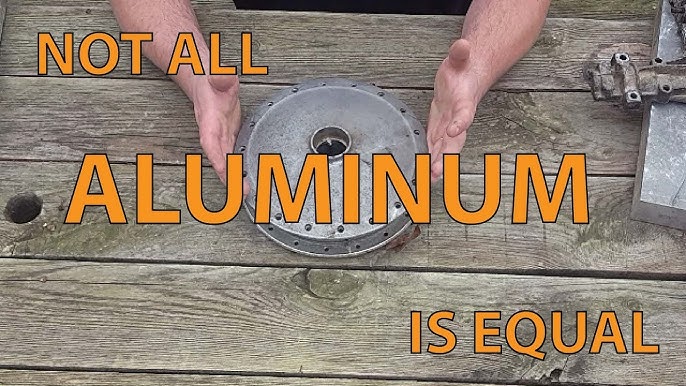Alcast Company Can Be Fun For Anyone
Alcast Company Can Be Fun For Anyone
Blog Article
8 Simple Techniques For Alcast Company
Table of ContentsThe Main Principles Of Alcast Company How Alcast Company can Save You Time, Stress, and Money.Alcast Company Fundamentals ExplainedA Biased View of Alcast CompanyThe 7-Minute Rule for Alcast CompanyAlcast Company Can Be Fun For Anyone
Chemical Contrast of Cast Aluminum Alloys Silicon promotes castability by minimizing the alloy's melting temperature level and boosting fluidness throughout spreading. In addition, silicon adds to the alloy's strength and wear resistance, making it important in applications where longevity is essential, such as automobile parts and engine parts.It likewise improves the machinability of the alloy, making it much easier to refine into finished products. In this way, iron contributes to the overall workability of aluminum alloys.
Manganese contributes to the toughness of aluminum alloys and boosts workability. Magnesium is a lightweight component that offers strength and influence resistance to light weight aluminum alloys.
Rumored Buzz on Alcast Company
Zinc enhances the castability of light weight aluminum alloys and aids manage the solidification procedure throughout casting. It improves the alloy's strength and firmness.

The main thermal conductivity, tensile toughness, yield strength, and prolongation differ. Select suitable raw products according to the efficiency of the target item produced. Among the above alloys, A356 has the highest possible thermal conductivity, and A380 and ADC12 have the most affordable. The tensile limitation is the contrary. A360 has the very best yield strength and the highest prolongation price.
Alcast Company Fundamentals Explained

In precision spreading, 6063 is fit for applications where elaborate geometries and high-grade surface coatings are paramount. Instances include telecommunication units, where the alloy's superior formability enables sleek and cosmetically pleasing styles while preserving architectural stability. Similarly, in the Lights Solutions industry, precision-cast 6063 elements develop stylish and effective lights fixtures that call for detailed shapes and great thermal efficiency.
The A360 shows superior elongation, making it optimal for complicated and thin-walled components. In precision casting applications, A360 is fit for sectors such as Consumer Electronic Devices, Telecommunication, and Power Tools.
Rumored Buzz on Alcast Company
Its distinct homes make A360 a beneficial choice for precision spreading in these industries, improving product sturdiness and top quality. Aluminum alloy 380, or A380, is a commonly used spreading alloy with numerous distinctive attributes. It provides superb castability, making it an optimal selection for precision spreading. A380 shows good fluidity when molten, making sure elaborate and in-depth mold and mildews are properly get redirected here replicated.
In accuracy spreading, light weight aluminum 413 radiates in the Customer Electronics and Power Equipment industries. This alloy's remarkable rust resistance makes it an exceptional choice for outdoor applications, ensuring long-lasting, durable items in the discussed markets.
The Facts About Alcast Company Revealed
When you have decided that the light weight aluminum pass away casting process is suitable for your task, a critical next step is making a decision on the most proper alloy. The aluminum alloy you choose will substantially affect both the casting process and the residential or commercial properties of the final item. Due to the fact that of this, you should make your decision very carefully and take an informed method.
Establishing the most appropriate aluminum alloy for your application will mean considering a wide variety of attributes. The very first classification addresses alloy attributes that impact the manufacturing process.
The Greatest Guide To Alcast Company
The alloy you select for die casting directly impacts a number of elements of the casting process, like how simple the alloy is to work with and if it is vulnerable to casting problems. Hot splitting, also called solidification cracking, is a regular die casting defect for light weight aluminum alloys that can result in interior or surface-level tears or splits.
Certain light weight aluminum alloys are much more at risk to hot splitting than others, and your option must consider this. Another typical issue found in the die spreading of aluminum is pass away soldering, which is when the cast sticks to the die walls and makes ejection tough. It can harm both the cast and the die, so you need to search for alloys with high anti-soldering properties.
Rust resistance, which is currently a noteworthy attribute of aluminum, can vary considerably from alloy to alloy and is a vital particular to consider depending on the environmental problems your product will be exposed to (Casting Foundry). Wear resistance is one more property generally looked for in aluminum items and can differentiate some alloys
Report this page